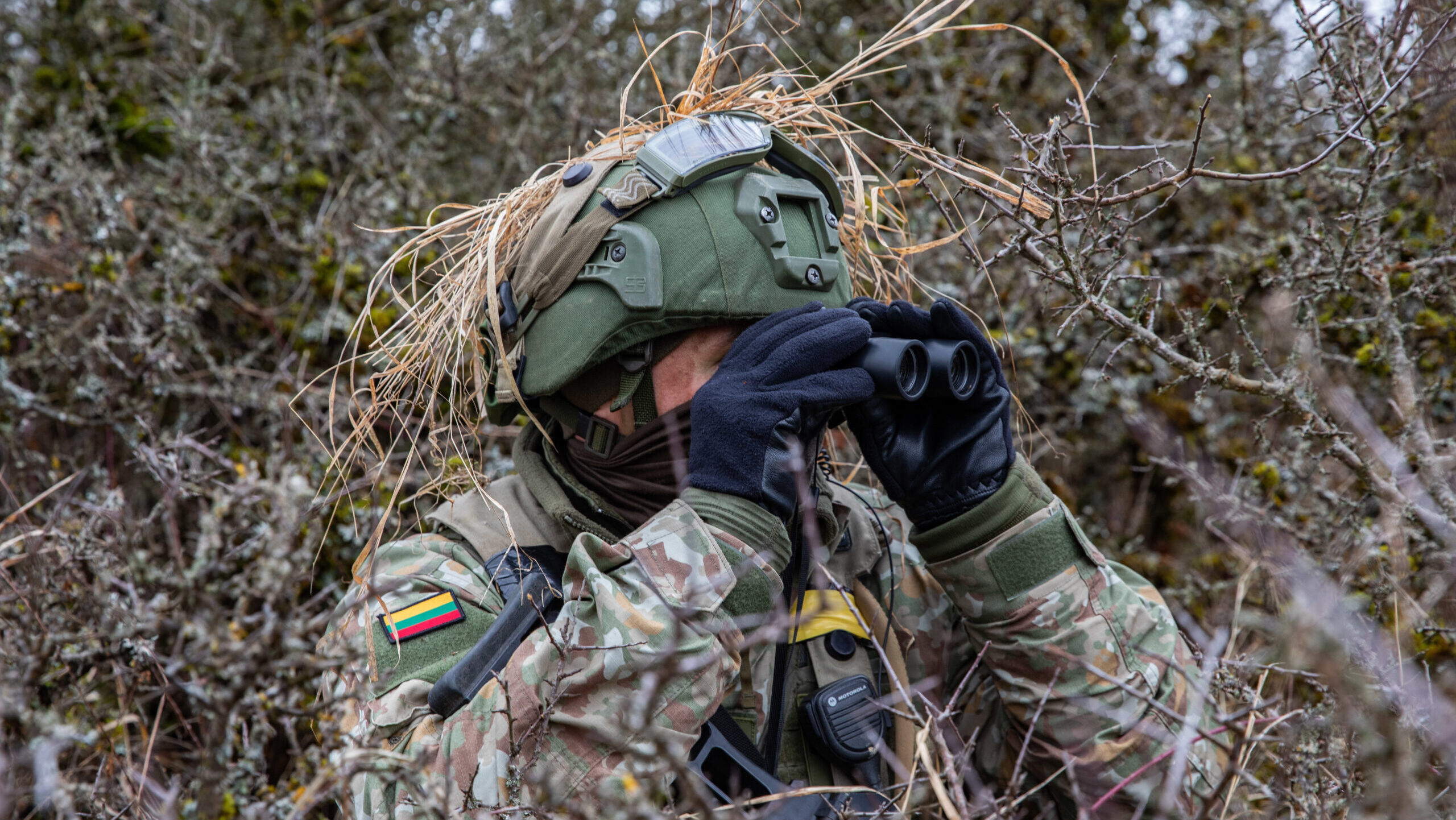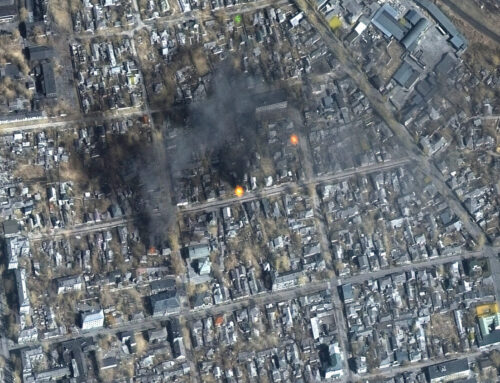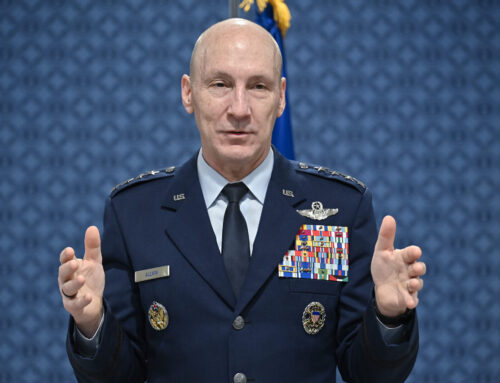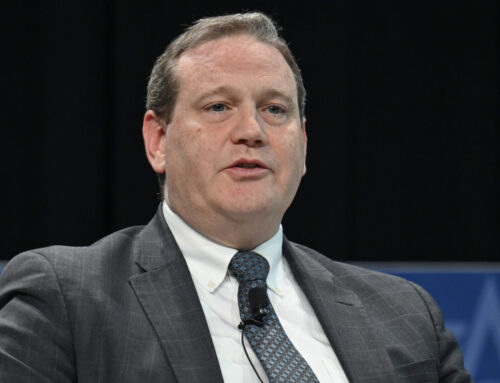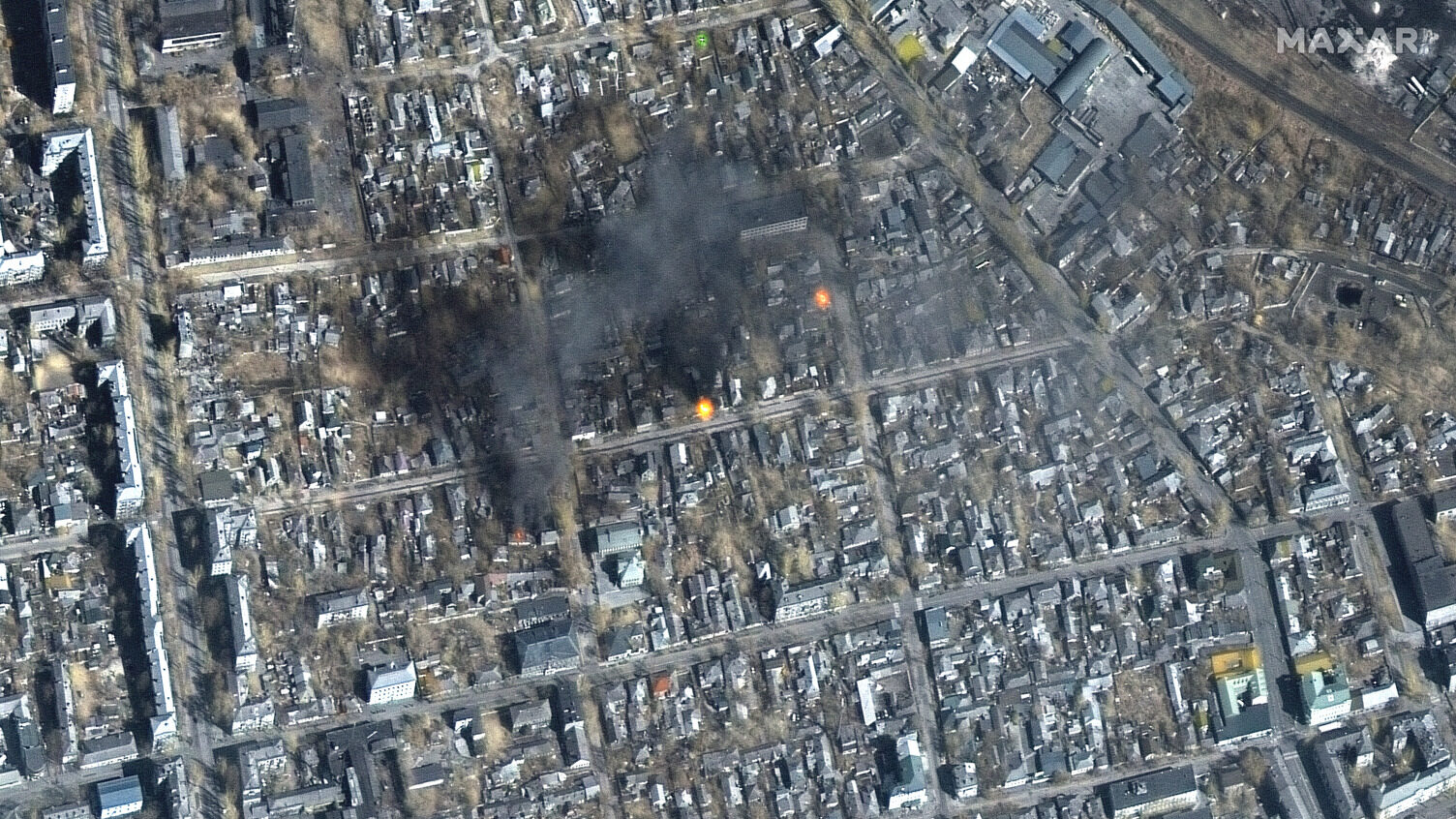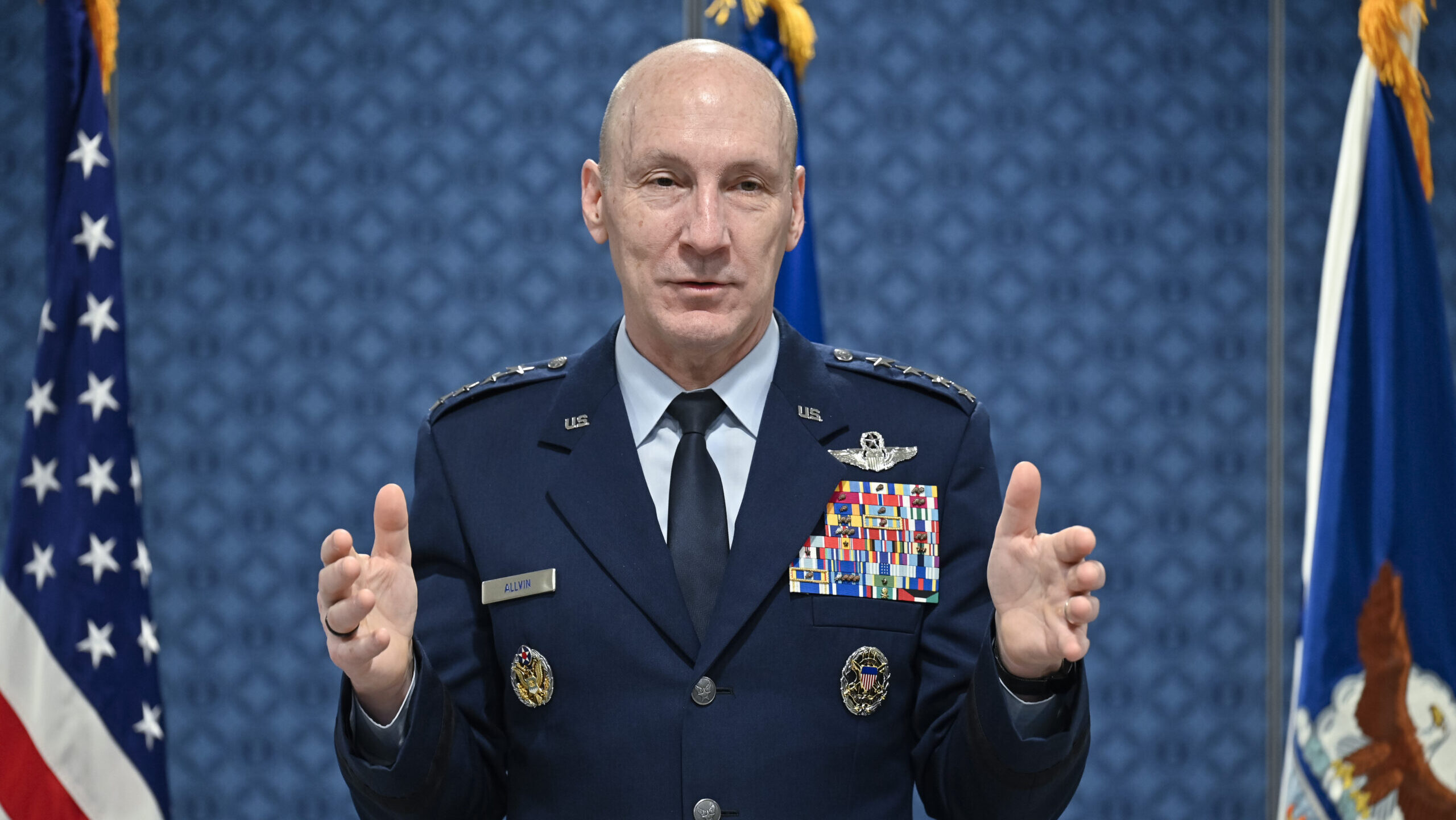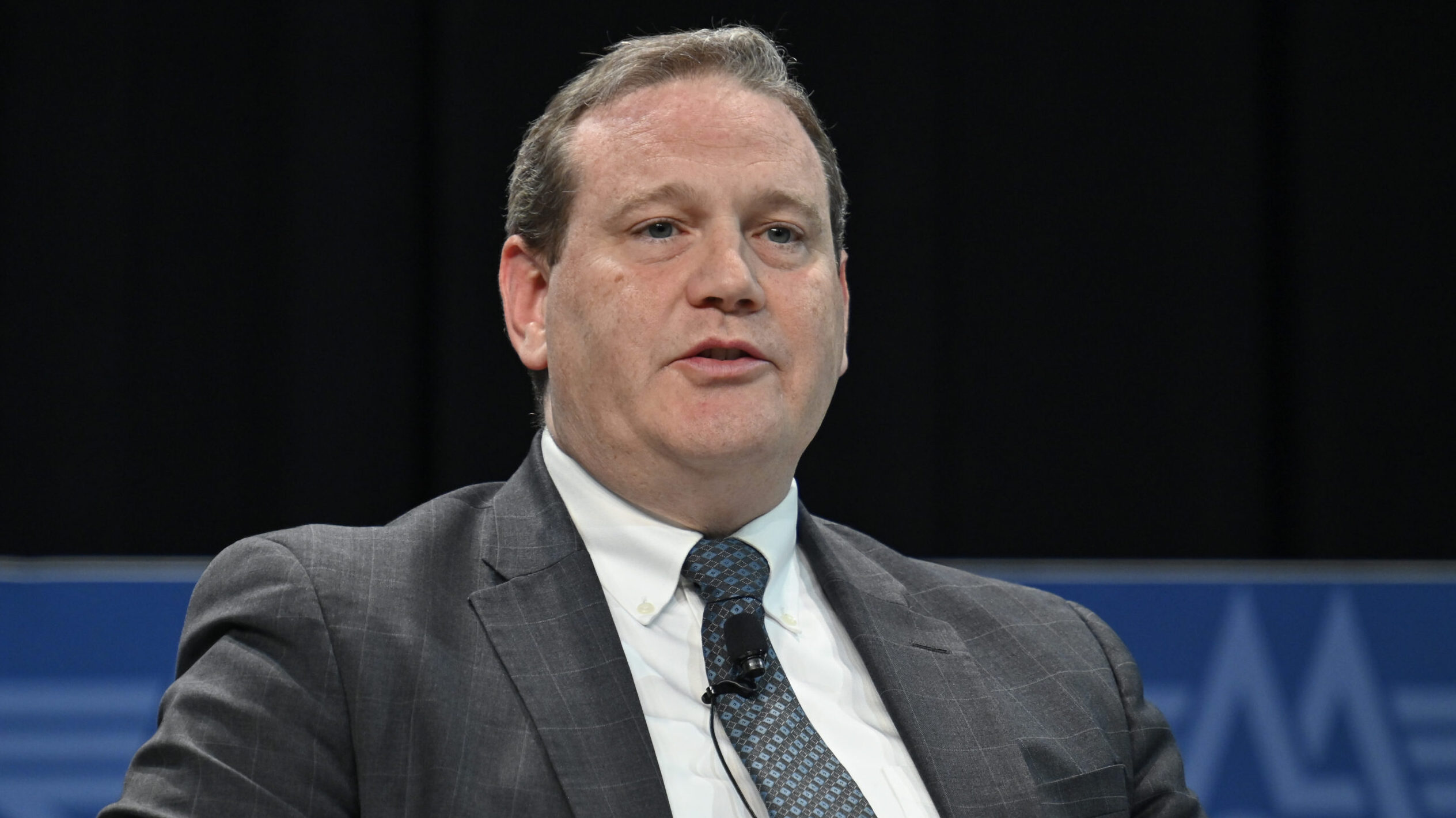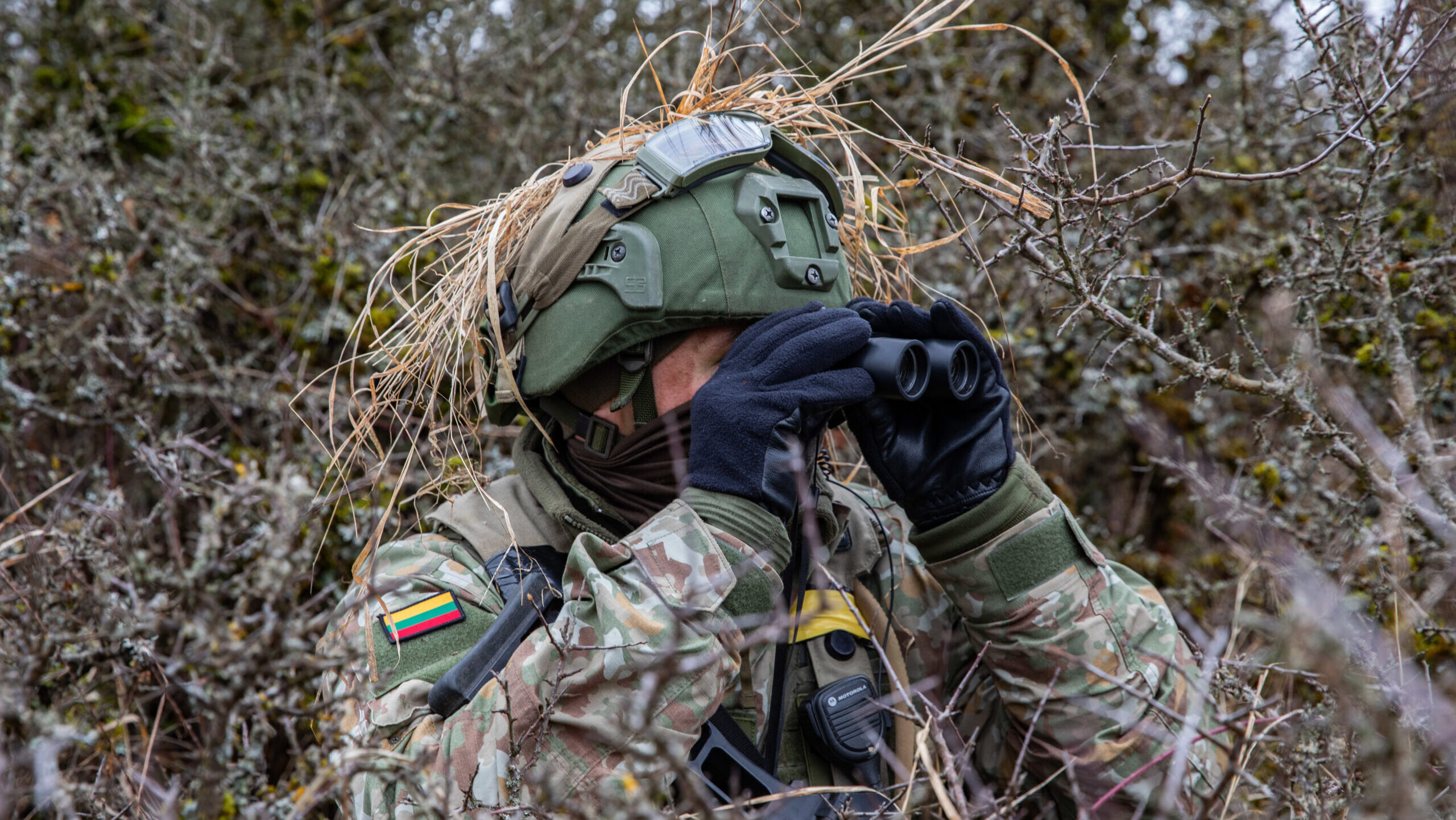
A 1st Lt. with the Lithuanian KASP (National Volunteer Defence Forces) watches for enemy vehicles on a nearby road during Exercise Allied Spirit 22 at the Joint Multinational Readiness Center (JMRC) in Hohenfels, Germany (US Army)
BELFAST — Senior Lithuanian military and political officials have agreed to invest 5 to 6 percent GDP on defense spending over the next five years; making it the first NATO country to make such a commitment since US President-elect Donald Trump lobbied for alliance members to hit the lofty 5 percent target.
Lithuania’s State Defence Council, comprised of top defense leaders and lawmakers, met and agreed on the new 2026-2030 spending plan today, according to public broadcaster Lithuanian Radio and Television (LRT).
The move, a direct response to Russian aggression, was confirmed on X by Lithuania’s President Gitanas Nauseda. He noted that the future funding uplift will enable “a fully capable division by 2030 & enhance our national defense capabilities,” adding, “May we lead by example.”
Similarly, Lithuania’s Foreign Minister Kestutis Budrys said on the social media platform, “We call on our allies to follow this lead. The era of passive ‘sit-and-wait’ strategies is over.”
Dovile Sakaliene, Lithuania’s defense minister, echoed that sentiment, claiming the “historic decisions” taken with respect to the new defense plan and future establishment of a “fully operational” NATO-backed national division “will enable us to carry out weaponry procurements faster, pay in advance if the situation requires and rapidly develop military infrastructure.”
She went on, via X, “Our message is clear: Lithuania is ready to ensure the security of its citizens by all means.
LRT reported that Nauseda said the increased spending will be delivered through state borrowing and public spending cuts, as opposed to raising taxes.
Since taking office in December 2024, he has been vocal on the need for NATO allies to agree on an improved baseline of 3 precent GDP for defense spending, in a bid to replace the current 2 percent target. According to NATO figures for 2024 [PDF], Vilnius spent 2.85 percent GDP on military spending, ranking behind just five other allies.
The Baltic state’s long-term spending plan emerges days before Trump’s inauguration and second term that is expected to see a raft of changes to US foreign policy. One such expected change is policy surrounding Ukraine, where a 100-day plan to end the war has been floated by Ukraine peace envoy Keith Kellogg.
Vilnius has committed to spend at minimum, 0.25 percent GDP on military aid to Ukraine and has previously supplied Kyiv with a wide variety of weapons including 155mm ammunition, M577 and M113 armored personnel carriers, counter unmanned aerial systems, and Carl Gustaf anti-tank recoilless rifle ammunition. It co-leads the Ukraine demining coalition capability group alongside Iceland, aimed at equipping Ukrainian armed forces with remote detonation systems.


